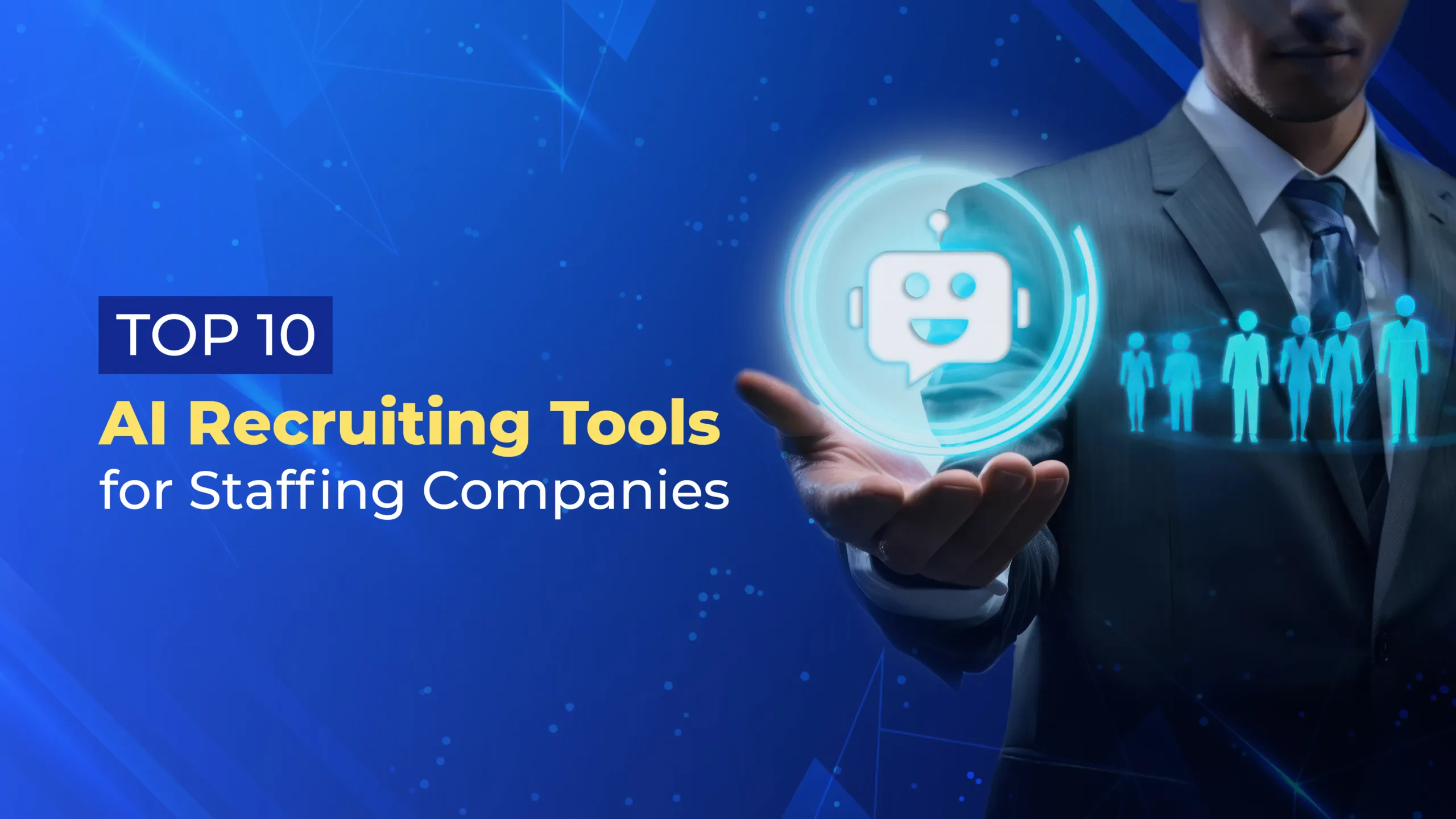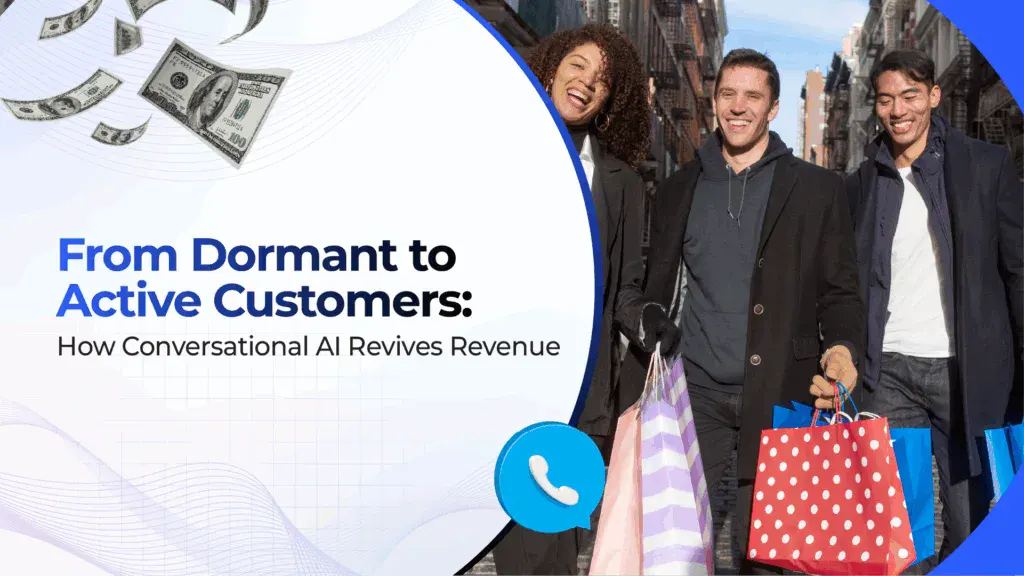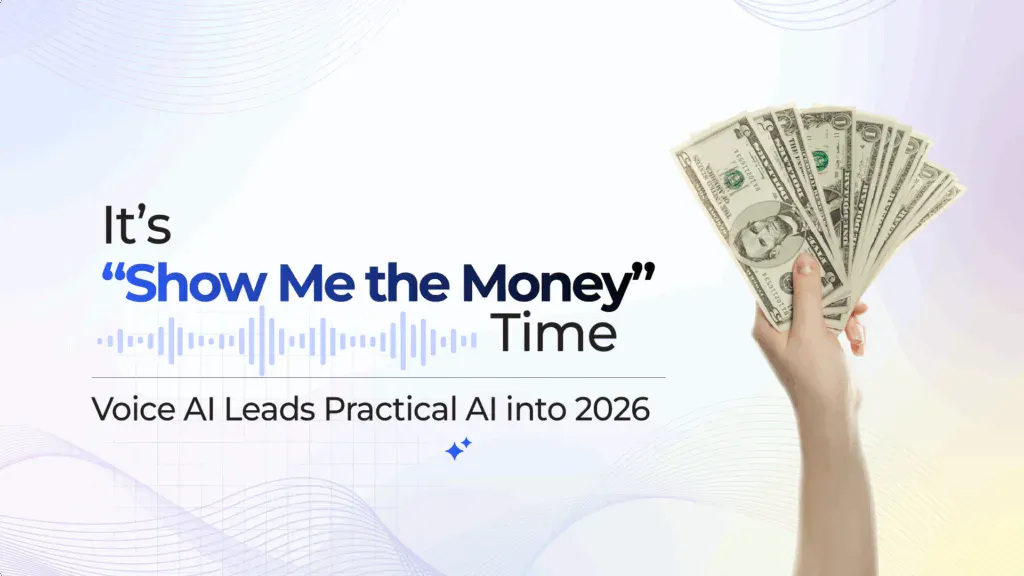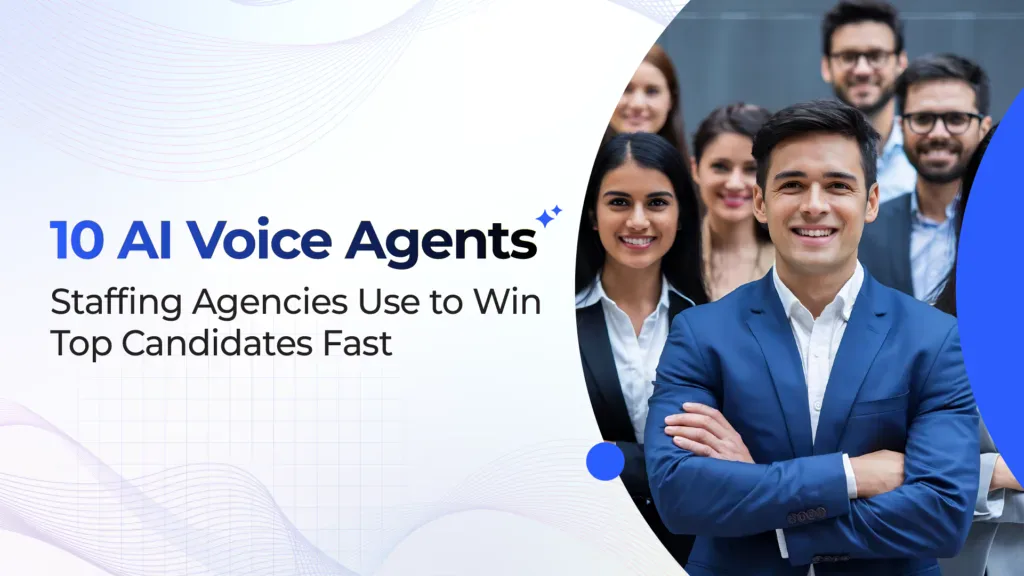Fact: Traditional recruiting methods can’t keep pace with demand.
Fact: Staffing companies that don’t adapt are getting buried and left behind.
But knowing you need AI-powered recruiting tools is just the first step. Deciding WHAT automation solutions you need is just as important.
And this is where things can get dicey.
Choose the wrong AI recruiting tool, and you waste budget and momentum. Deploy poorly, and your team could rebel against technology meant to help them catch up and get ahead.
This guide aims to help you cut through the noise.
Here we break down the top 10 AI recruiting tools with their key features, honest pros and cons, and scenarios where each one shines—so you can invest confidently and deploy successfully.
Why Staffing Companies Use AI Recruiting Tools
Have you lost several perfect candidates to faster competitors? They were probably using AI recruitment tools.
The recruiting game has fundamentally changed—speed wins, volume is crushing teams, and companies that invest in AI wisely are the ones pushing ahead.
Here’s why you should stop waiting and make the switch:
- Speed to Hire Challenges: AI recruitment tools help companies stay ahead of the competition by engaging and screening candidates faster.
- Overwhelming Application Volume: Going through endless piles of resumes burns out your hiring team and reduces productivity. AI is excellent at screening hundreds of applications simultaneously, then scoring and ranking candidates.
- Time Wasted on Screening: More applications also doesn’t necessarily mean better candidates. Instead of wasting time on unqualified prospects, AI recruiting tools help you find the A+ candidates in massive talent pools faster.
- Cost Pressures: Recruitment is expensive. Every day a position stays open costs money, and manual methods stretch timelines beyond what clients can tolerate. The right AI-powered hiring reduces time-to-fill and cost-per-hire.
- Competitive Advantage: AI recruitment tools give you an extra business edge. While competitors debate AI adoption, you can capture top talent faster and scale operations without adding headcount.
Keep reading to explore the top options to evaluate when shopping for an AI recruitment tool for your company.
The Top 10 AI Recruitment Tools for Hiring Companies in 2025
1. Rebecca by Pete & Gabi
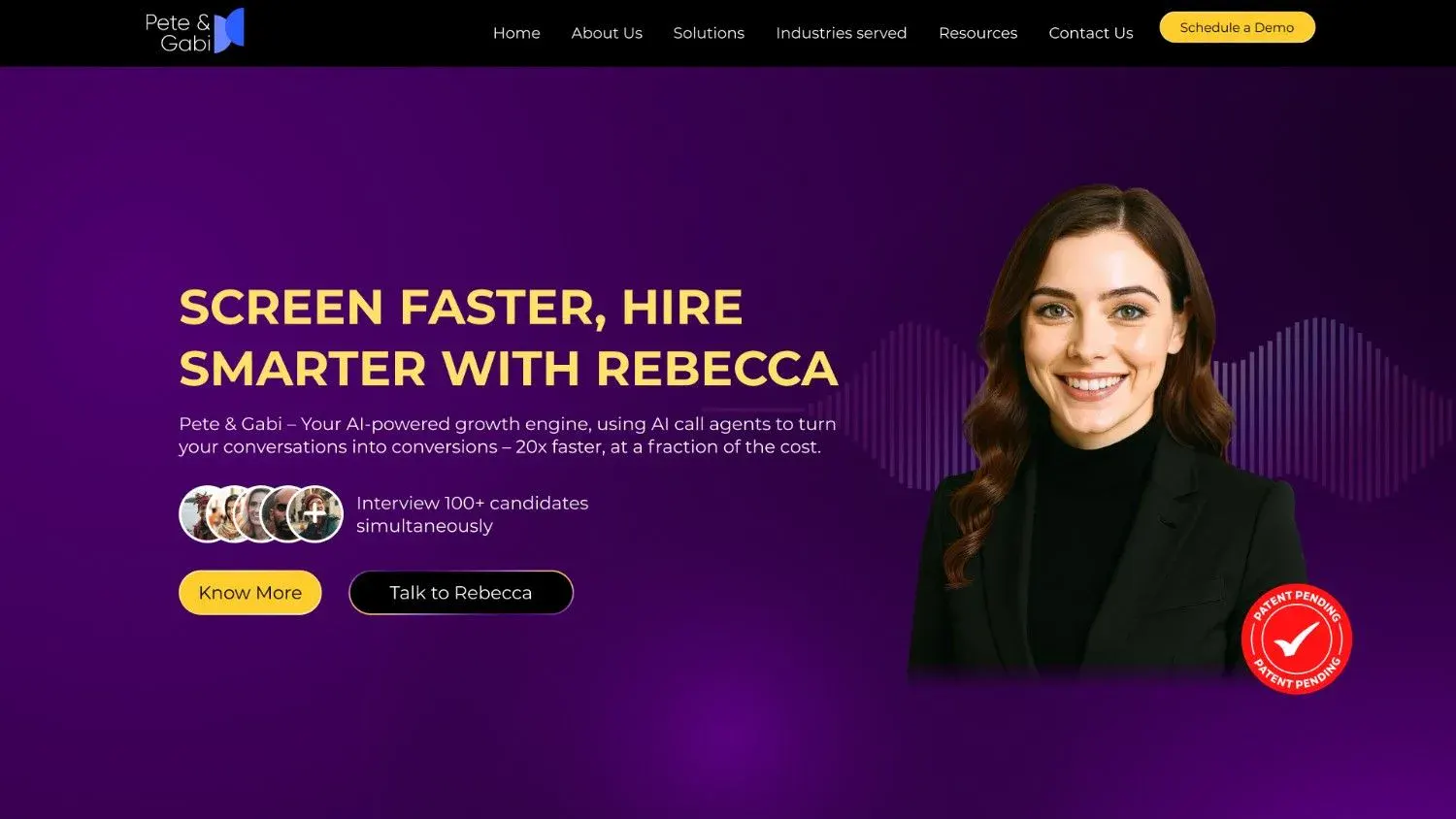
First on our list is Rebecca, and for good reason too.
Rebecca is a full cycle hiring partner designed to take the weight off recruitment teams.
Built specifically for staffing and recruitment companies, Rebecca streamlines everything from candidate outreach and prequalification to interview scheduling and live video interviews, complete with detailed scorecards.
Unlike tools that focus on single functions like resume screening or chatbot interactions, Rebecca handles the entire front-end of your recruiting.
This means your hiring team can focus on closing conversations with pre-vetted, top candidates that already meet your necessary criteria.
She instantly engages prospects in natural conversations, asks intelligent screening questions and adapts her approach based on responses. Rebecca is capable of conducting full interviews that rival human recruiters.
With conversational AI capabilities that span more than 15 languages, Rebecca ensures every candidate interaction is personal, respectful, and aligned with your brand’s voice.
Key Features
- Live AI interviews with dynamic conversation flows
- Real-time candidate scoring and detailed assessments
- Native integration with major ATS and CRM platforms
- Comprehensive interview reports and candidate insights
- 24/7 global availability across time zones
- Intelligent handoff to human recruiters with full context
- Multi-language capability
Pros
- Cuts time-to-hire by up to 80%
- Reduces cost per hire by up to 60%
- Offers end-to-end recruitment automation that unburdens hiring teams
- Keeps candidates engaged across multiple touchpoints
- Ensures seamless integration with existing workflows
Cons
- Teams may need to refine workflows to maximize results
- Pricing is customized, which can make budgeting harder for smaller companies
Best for
Companies that require full-stack recruiting automation.
2. Ribbon AI

Ribbon AI is a recruitment automation tool that specializes in candidate engagement and pipeline management. Designed with AI-driven personalization, Ribbon zeroes in on one of the biggest hiring challenges—keeping candidates warm and reducing ghosting.
With AI-driven personalization, it helps recruiters nurture hundreds of candidates at scale while still making interactions feel thoughtful and intentional.
Using automated follow-ups and contextual reminders, Ribbon aims to keep candidates connected to the hiring process by creating consistent touchpoints that reduce drop-offs and improve the overall candidate experience.
Key Features
- AI-driven candidate engagement via email, SMS, and chat
- Automated follow-ups to reduce candidate ghosting
- Analytics dashboard for pipeline visibility
- Integrations with leading ATS platforms
Pros
- Keeps candidates engaged across multiple touchpoints
- Reduces no-shows and ghosting with timely, automated nudges
- Easy integration with existing workflows
Cons
- Limited in-depth screening capabilities compared to full AI recruiters
- Best suited for engagement rather than full-cycle recruitment automation
Best For
Companies and recruitment teams that want to minimize candidate ghosting and maintain engagement throughout the hiring process.
3. Alex (formerly Apriora)

Alex is an AI-powered interview assistant built to streamline the interview stage.
What sets Alex apart is its focus on fair, unbiased, and scalable interviewing. Using advanced natural language processing (NLP), the platform helps hiring teams conduct structured interviews and evaluate candidate responses in real-time.
Instead of juggling multiple interviews and struggling to maintain consistency, Alex standardizes the process while still keeping it conversational and adaptive.
By ensuring that every candidate is evaluated against the same criteria, Alex helps reduce the risk of human bias in the interview process.
Key Features
- AI-driven structured interviews with adaptive questioning
- Automated scoring and competency assessments
- Transcripts and analytics for consistent evaluation
- Integration with popular ATS platforms
Pros
- Ensures consistency and fairness in interviews
- Saves recruiters time on repetitive interview rounds
- Provides actionable candidate insights and analytics
Cons
- Less effective for highly creative or unstructured roles where flexibility is key
- No option to hand off to human recruiters
Best For
Organizations that want to standardize interviews at scale, reduce bias, and make hiring more data-driven.
4. Leila

Leila is an AI recruitment assistant designed to help hiring teams reduce the heavy lifting that comes with repetitive, early-stage recruitment tasks.
The platform excels at candidate pre-screening, communication, and scheduling, making it valuable for companies looking to shorten their time-to-hire without sacrificing candidate experience.
Instead of relying on clunky outreach or rigid templates, Leila personalizes interactions at scale, ensuring candidates feel heard and valued from the very first message. This tool also handles prospect qualification and interview scheduling.
Key Features
- Automated candidate pre-screening with customizable criteria
- Human-like, AI-driven communication
- Smart scheduling and interview coordination
- Analytics and insights on candidate pipeline health
- Integrations with popular ATS platforms
Pros
- Improves candidate experience through personalized engagement
- Reduces recruiter workload in early stage hiring
- Streamlined scheduling
Cons
- No video interviews
- No live transfer option to human recruiter
- Best suited for early and mid-stage recruitment, not full cycle
Best For
Mid-sized to large companies managing high applicant volumes looking to reduce repetitive manual tasks with sacrificing candidate experience.
5. Interviewer AI

Interviewer AI is an AI-powered video interview and candidate screening tool built to simplify and accelerate the hiring process.
This tool is particularly effective for roles that require active communication, problem-solving, or presentation skills—attributes that can be difficult to gauge through resumes alone.
By combining structured video interviews with skill assessments and behavioral analysis, Interview AI evaluates candidates holistically, giving recruiters deeper insight into both technical and soft skills before deciding who moves forward in the pipeline.
In addition, it helps hiring managers ensure fairer, bias-reduced, and scalable hiring decisions with automated video interviews and candidate scoring.
Key Features
- AI-powered video interviews with automated question prompts
- Skill and personality assessments for deeper candidate insights
- Analytics dashboard with candidate scoring and ranking
- Customizable evaluation rubrics for different roles
Pros
- Saves recruiters significant screening time
- Reduces unconscious bias with standardized evaluations
- Great for assessing soft skills like communication and presentation
Cons
- Limited use for roles requiring extensive technical assessments
- May require training for recruiters to interpret AI-driven insights effectively
Best For
Companies hiring for customer-facing or communication-heavy roles, such as sales, marketing, and support.
6. Teambridge

Next on the list is Teambridge.
This AI-first recruiting platform is designed to help companies streamline candidate outreach, screening, and team collaboration.
Teambridge positions itself as a full-stack recruitment companion, enabling HR teams to manage everything from job posting to candidate evaluation under one roof. It blends automation with collaborative workflows, allowing hiring managers the ability to stay aligned throughout the hiring journey.
Teambridge also offers an AI-powered matching engine, which scans candidate profiles, resumes, and skills against job descriptions to surface the most relevant applicants.
Key Features
- AI-driven candidate-job matching for smarter shortlisting
- Centralized platform for team collaboration and feedback
- Customizable workflows for different hiring processes
- Integrated communication tools for candidate engagement
- Reporting and analytics dashboards to track performance
Pros
- Combines automation with human collaboration seamlessly
- Reduces miscommunication and keeps all hiring stakeholders aligned
- Strong analytics for improving recruitment strategies
Cons
- May feel heavy for companies looking for a lightweight tool
- Setup and customization time must be allotted for
Best For
Organizations that manage collaborative hiring processes across multiple teams or departments and need a unified platform to centralize recruitment operations.
7. Asendia AI

Asendia AI is an advanced recruitment intelligence platform that focuses on candidate sourcing and pipeline building at scale.
Instead of manually combing through LinkedIn or job boards, recruiters can rely on this tool to automatically identify, engage, and qualify top talent across multiple industries.
Asendia AI shines in its ability to combine machine learning with data enrichment, helping recruiters not only find candidates faster but also better understand their career histories, skillsets, and potential fit.
Rather than waiting for prospects to send in applications, it continuously scans databases and professional networks to keep your pipeline fresh with quality candidates.
Key Features
- AI-driven sourcing across databases, job boards, and social profiles
- Automated outreach with personalized messaging sequences
- Candidate data enrichment for better qualification
Pros
- Excellent for proactive sourcing and headhunting
- Keeps pipelines consistently filled with qualified talent
- Strong personalization in automated communications
Cons
- Less focus on interview or post-screening processes
- Can be data-heavy, needing strong recruiter oversight for best results
Best For
Recruitment teams and staffing agencies that rely heavily on outbound sourcing and want to automate the top of the funnel.
8. Veton

Veton is an AI-powered recruitment assistant designed to streamline the entire candidate experience while reducing the manual load on hiring teams.
This tool combines AI-powered conversational capabilities with intelligent scheduling and workflow automation to help recruiters move candidates quickly from first touch to final interview.
Veton’s conversational AI handles candidate screening in real-time by asking preset questions to filter for skills, experience, and availability. Once qualified, the platform manages interview scheduling by syncing with recruiter calendars.
It also keeps candidates engaged with timely reminders and status updates to reduce drop-offs and improve the overall candidate experience.
Key Features
- Conversational AI for candidate pre-screening
- Automated scheduling with calendar integration
- Candidate engagement capabilities
Pros
- Strong focus on candidate experience
- Automates repetitive but critical touchpoints
- Easy integration with calendars and ATS tools
Cons
- Limited advanced analytics compared to some competitors
- Customization may require setup effort for complex workflows
Best For
Hiring teams and growing companies that want to improve candidate experience and eliminate administrative bottlenecks.
9. Eightfold AI

Eightfold AI is one of the most advanced talent intelligence platforms on the market, built with deep-learning AI to help companies identify, attract, and retain top talent at scale.
The platform leverages a massive global talent dataset to deliver predictive insights about candidates, employees, and workforce planning. This makes it especially powerful for organizations that want to align hiring with long-term business strategy.
While Eightfold AI may not be a solely recruitment-focused solution, it helps companies make smarter hiring decisions by reducing bias in candidate selection and promoting fairer hiring practices.
At enterprise level, this platform becomes a strategic HR partner rather than just a recruitment tool.
Key Features
- AI-powered candidate matching based on skills and potential
- Predictive analytics for workforce planning and mobility
- Diversity-focused talent recommendations
Pros
- Helps with both hiring and employee retention
- Strong emphasis on skills-based matching and diversity
- Advanced analytics to guide hiring decisions
Cons
- May be too complex or costly for small businesses
- Requires robust data inputs for best results
- Implementation and onboarding can take longer than lighter weight tools
Best For
Large enterprises that want a comprehensive AI-driven talent management solution spanning hiring, retention, and workforce planning.
10. XOR

XOR is an AI recruitment automation platform designed to streamline high-volume hiring through conversational AI, SMS, and chatbot-driven engagement.
Built for speed and scalability, XOR enables recruiters to automate repetitive tasks such as candidate screening, interview scheduling, and follow-ups.
In addition, this platform offers an omnichannel communication approach that allows candidates to interact via text, WhatsApp, chatbots, or email, ensuring no lead slips through the cracks.
XOR places a strong emphasis on efficiency in high-volume hiring environments while keeping interactions personalized.
Key Features
- AI-powered chatbots for candidate engagement
- Automated screening and interview scheduling
- Multichannel communication (SMS, WhatsApp, chat, email)
- ATS integrations for seamless workflows
Pros
- Ideal for high-volume recruitment
- Improves candidate response and engagement rates
- Strong automation features that save recruiter time
Cons
- Less suitable for niche hiring
- No AI interviewer capabilities
Best For
High-volume recruiters who need fast, scalable automation.
Quick Tips for Choosing the Right AI Recruitment Tool for Your Business
- Assess your biggest pain points: speed, volume, quality, or hiring cost?
- Consider your current tech stack: does the tool support your integration requirements?
- Evaluate your team’s technical expertise: does the tool require a steep learning curve? Is it complex to implement?
- Ensure proper budget considerations: does the tool offer pricing models that fit your budget? Do your ROI calculations justify the investment?
- Request a pilot program: does the AI provider offer you a test period before full deployment?
Bringing It Together
AI recruitment tools have moved far beyond being “nice-to-haves.”
Today, these platforms are mission-critical for hiring companies that want to stay competitive, reduce time-to-hire, and secure top talent before competitors do.
From outreach automation and AI-led interviews to analytics and personalization, each tool we’ve covered brings unique strengths to the table. The key is choosing the right platform that aligns with your specific goals and organizational workflows.
If you’re looking for a recruitment AI that goes beyond automation to deliver results that matter, Rebecca by Pete & Gabi is a great choice.
Schedule a demo today to see for yourself.
FAQs
Is AI recruiting legal and compliant?
Yes, AI recruiting is legal. However, compliance depends on the platform and how you use it. Leading AI hiring tools are designed with data privacy, consent management, and bias mitigation features to comply with regulations like GDPR, EEOC, and local labor laws.
Can AI replace human recruiters?
No. AI recruitment tools are best seen as force multipliers not replacements. While AI handles repetitive tasks like resume screening, scheduling, and candidate engagement, human recruiters are still essential for relationship-building and final hiring decisions. Together, they create a faster, more effective process.
How do you measure AI recruiting success?
Key metrics include time-to-hire, cost-per-hire, candidate quality scores, response rates, and recruiter productivity improvements. The right AI platform will provide dashboards to help you measure these outcomes and more in real time.



